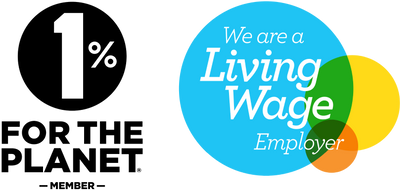Carbon Calculations & Trees for Life

Another year has passed since our last carbon calculation and what a year it's been. Yallah has continued to grow and in many ways, things feel smoother and more ordered than ever. I'm very proud of that. Whilst our business grows I think more and more about the impact of our business and indeed our industry as a whole.
What sustainability means?
The climate is changing and our world is heating. This is not in question. Neither is the fact our industry, in particular, will feel the effects of this change. Millions of coffee farmers and farm workers are experiencing irregular weather patterns, warmer temperatures, and increased outbreaks of pests and diseases as a result of said changeª.
Addressing climate change is a priority for us, no matter how small our impact might be. For this reason, we support activities that help farmers adapt to climate change, buy from producers who are proactively trying to farm sustainably and do what we can to reduce emissions of greenhouse gases from our business activities.
So, the following calculations are not an effort to wash our hands of any responsibility. I do not believe that becoming 'carbon neutral' is a golden ticket to continue on the same course. The aim is to highlight areas good and bad; analyse, evaluate and work out a plan on how we can improve. In doing so, we can see whether or not we are the company we want to be.
Our Business
Argal Home Farm
First and foremost, Argal Home Farm is a wonderful place and we're extremely proud to call it our home. Not least because of the vision and commitment of the man at the helm, James Smith. Thanks to considerable investment in infrastructure, the farm is NET positive in terms of its power consumption.
That means it produces more power than it uses. Whilst we still import some power (due to the issues of energy storage and selling back to the grid) the renewable energy sources on the farm mean 46% of the power we use is created on-site.
The entire farm (all resisdents and businesses) also benefits from a gigantic biomass heating system. That means, most days of the year, the majority of out energy is created on site, from renewable sources.
Our Figures - Oct 18 - Oct 19
Roasted Coffee: 24,200 kg
Energy used to roast coffee: 1692l of Liquid Propane
Energy used within the roastery buildings: 3943 kWh/m2
Electricity generated and used on-site: 46%
Woodchip used for biomass boiler: 3300 kg
Energy used at the Kiosk: 1325.8 kWh/m2
CO2e at the Kiosk: 224.13 kgCO2/m2
Transport: 33,000 miles by road, 23044 miles by plane
Emissions from transport: 14,994 CO2e
Total Emissions: 16539 kg CO2e
Equivalent to carbon: 4515 kg
Emissions from Coffee
The figures for coffees 'carbon footprint' are somewhat varied, however, it's fairly well agreed that circa 5 - 20 kilos of C02e is produced per kilo of coffee. This figure is dependent on things like processing method, farming practice, shipping route and most important how the drink is consumed. Indeed, some research suggests the final phase in its lifecycle (cafe/consumer) is responsible for 50% of the overall footprint.
Our method for calculating the carbon we feel responsible is a combination of said research and logic. Over 50% of the coffee we buy is naturally processed (significantly less CO2e than washed coffee) and we favour buying from biodiverse farms that farm in environmentally friendly ways. Therefore we're using the bottom end of the scale, in order to calculate our CO2e.
Results
Our emissions as a result of coffee: 60500 kg C02e
Equivalent to: 16518 kg Carbon
Our Total Emissions (from all business activities): 21033 kg Carbon
Offsetting the right way

According to a study which has been published in Science journal, planting trees is the best and most effective way of fighting climate change we have. Indeed, a recent report by the Guardian said 'New research estimates that a worldwide tree planting programme could remove two-thirds of all the emissions that have been pumped into the atmosphere by human activities, a figure the scientists describe as “mind-blowing”.
The issue is the type of trees and for the right purpose. That's why we've decided to partner with Trees for Life, a conservation charity dedicated to rewilding the Scottish Highlands. Their aim is to revitalised wild forest, providing space for wildlife to flourish and communities to thrive. The trees are native and planted because they enrich the landscape and wildlife, whilst mitigating carbon. Not, because they grow quickly.
As a silver partner, we have our own 'Yallah Grove'. You can see the progress of our grove and even support us by donating here (if you like). We've started with a donation of £744, which is above the amount that we have calculated would offset out annual Carbon emissions. Our ambition is to continue to raise money throughout the year.
We're incredibly proud to offer our support to such a pioneering charity.
Our trees will be planted at Dundreggan Estate near Loch Ness in beautiful Glenmoriston. The rich diversity of wildlife habitats at Dundreggan includes ancient Caledonian pinewoods and superb birch and juniper woodlands. With mires, wetlands and wildflower meadows, Dundreggan is a haven for wildlife. Over 4,000 species have been discovered there, with some found nowhere else in the UK.
The next steps for us are processing the information above and producing our first sustainability report. We have plenty to work on and some exciting projects in the pipeline that have become even more important to us, having done this work. 
References:
a. SCA White Paper - Climate Change and Coffee: Acting Globally and Locally
b. Kim Elena - 188-carbon-footprinting-better-tomorrow
d. https://unitedbaristas.com/magazine/insights/2019/08/with-so-many-crises-what-do-we-focus-on/







